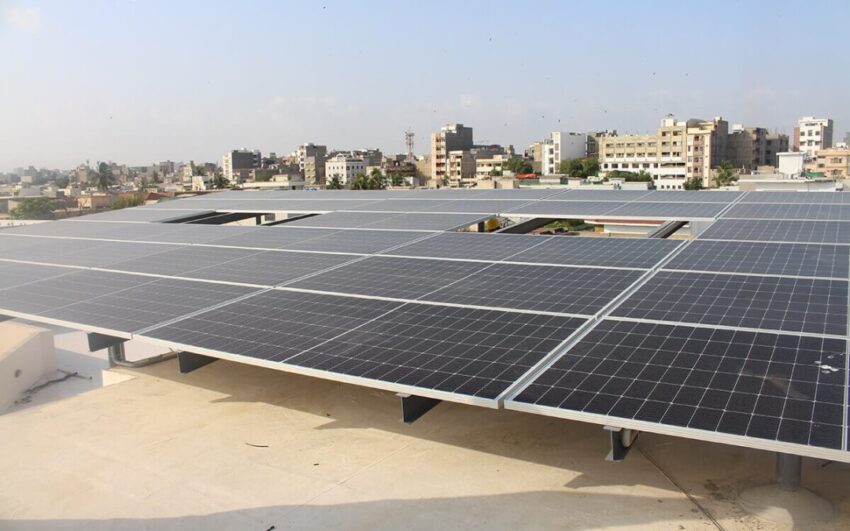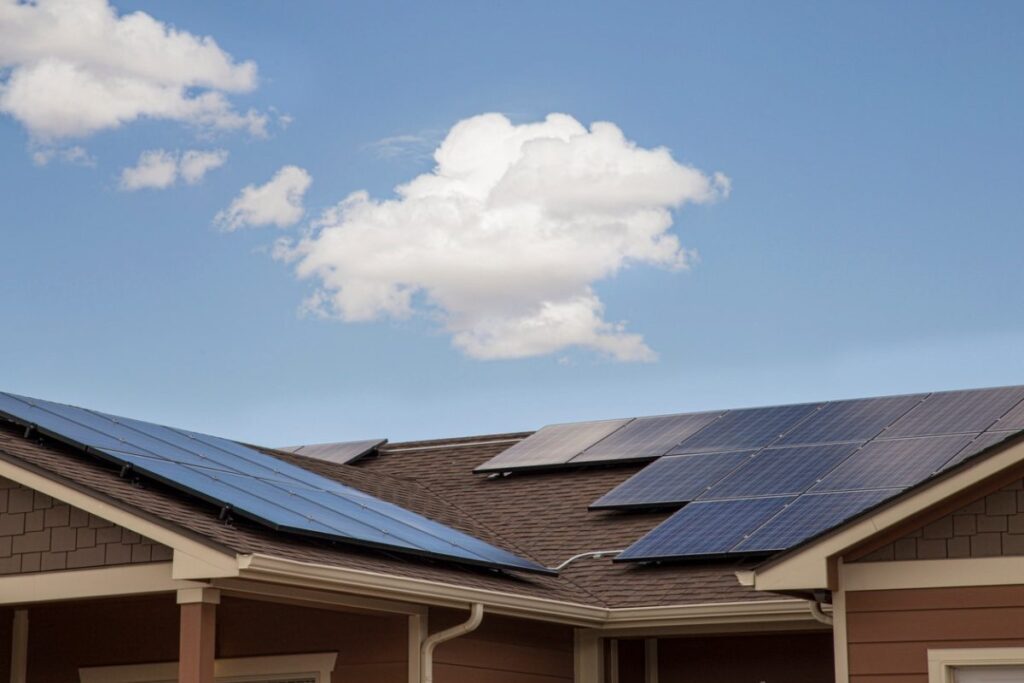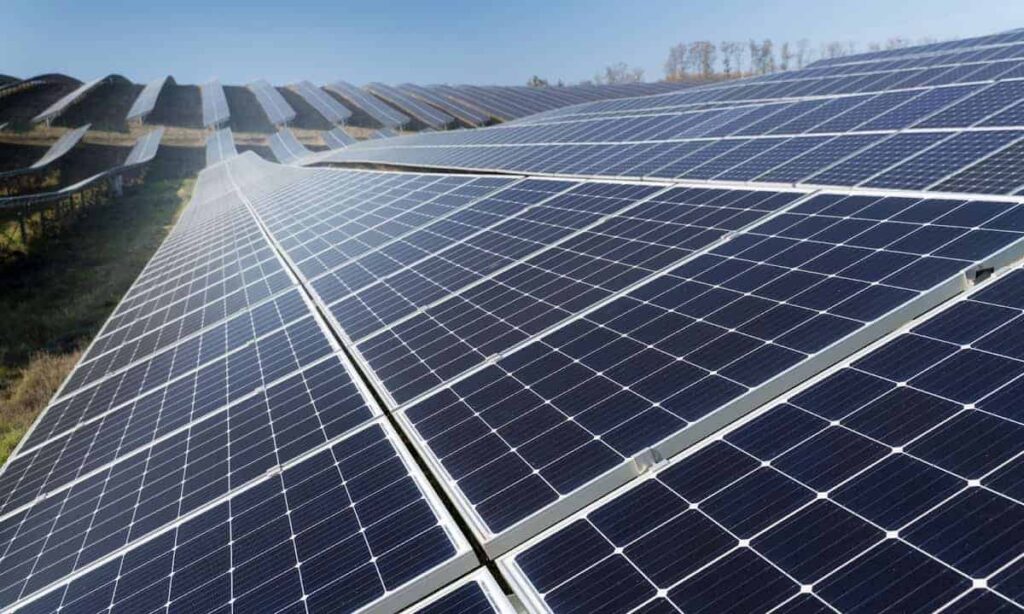Solar panels are becoming a common sight on rooftops and in fields, symbolizing the shift towards renewable energy. But with this rising trend, many wonder if the investment in solar panels is truly worth it. To answer this question, it’s essential to break down the costs, benefits, and long-term value of installing solar panels.
Understanding Solar Panels
What are Solar Panels?
Solar panels are devices that convert sunlight into electricity. They are made up of many solar cells, which capture sunlight and transform it into electrical energy.
How Do Solar Panels Work?
When sunlight hits the solar cells within the panels, it causes electrons to move, creating an electric current. This electricity can then be used to power homes and businesses or stored in batteries for later use.
Types of Solar Panels
Monocrystalline
These panels are made from a single, pure crystal structure. They are known for their high efficiency and sleek appearance but come at a higher cost.
Polycrystalline
Made from multiple crystal structures, polycrystalline panels are more affordable but slightly less efficient compared to monocrystalline panels.
Thin-Film
Thin-film panels are lightweight and flexible, making them versatile for various applications. However, they are generally less efficient and have a shorter lifespan.
Initial Costs of Solar Panel Installation
Purchasing Solar Panels
The cost of solar panels varies based on the type and efficiency. On average, residential solar panels cost between $2.50 to $3.50 per watt.
Installation Costs
Professional installation is crucial for the efficiency and longevity of your solar panel system. Installation costs can range from $5,000 to $10,000 depending on the complexity and location.
Additional Equipment Costs
Inverters
Inverters convert the direct current (DC) electricity produced by the solar panels into alternating current (AC) electricity used in homes. They typically cost between $1,000 and $2,000.
Mounting Systems
Mounting systems secure the panels to your roof or ground. Costs vary based on the type of system and the installation complexity, ranging from $500 to $3,000.
Wiring and Electrical Components
Proper wiring and electrical components ensure the safe and efficient transfer of electricity from the panels to your home. These costs can add an additional $500 to $2,000.
Ongoing Costs and Maintenance
Regular Maintenance
Solar panels require minimal maintenance, mainly cleaning and inspections to ensure optimal performance. Annual maintenance costs are typically around $150 to $300.
Repair Costs
Occasional repairs might be necessary due to weather damage or wear and tear. These costs can vary widely but generally range from $200 to $1,000.
Insurance Costs
Adding solar panels to your home may increase your homeowner’s insurance premium by a small amount, usually $10 to $20 per month.
Financial Incentives and Savings
Government Incentives
Federal Tax Credits
The federal government offers tax credits for solar panel installations, which can significantly reduce the initial investment cost. Currently, the credit is 26% of the installation cost but is set to decrease in the coming years.
State and Local Rebates
Many states and local governments offer additional rebates and incentives, which can further offset the cost of going solar.
Long-Term Savings on Energy Bills
One of the most significant benefits of solar panels is the reduction in electricity bills. Homeowners can save thousands of dollars over the lifetime of their solar panel system.
Net Metering Benefits
Net metering allows homeowners to sell excess electricity generated by their solar panels back to the grid, providing additional savings and financial benefits.
Environmental Impact and Benefits
Reducing Carbon Footprint
Solar energy is a clean, renewable source of power that significantly reduces greenhouse gas emissions compared to fossil fuels.
Sustainable Energy Source
By investing in solar panels, you contribute to a more sustainable and environmentally friendly energy future.
Return on Investment (ROI)
Calculating ROI
To calculate the ROI, consider the total costs of the system, including installation and maintenance, against the savings on energy bills and incentives.
Payback Period
The payback period is the time it takes for the savings to equal the initial investment. For most homeowners, this period ranges from 5 to 10 years.
Factors Affecting ROI
Location
Sunlight availability varies by location, affecting the efficiency and energy production of solar panels.
Energy Consumption
Higher energy consumption increases potential savings, improving the ROI.
System Efficiency
The efficiency of your solar panel system impacts the amount of electricity generated and, consequently, your savings.
Pros and Cons of Solar Panel Investment
Pros
Energy Independence
Solar panels reduce reliance on the grid, providing greater energy independence and security.
Increased Property Value
Homes with solar panels often have higher property values and sell faster than those without.
Cons
High Initial Costs
The upfront cost of solar panel systems can be a barrier for many homeowners.
Weather Dependence
Solar panels’ efficiency can be affected by weather conditions, such as cloudy days or heavy snowfall.
Real-Life Examples and Case Studies
Homeowners’ Experiences
Many homeowners report significant savings and satisfaction with their solar panel systems, highlighting the long-term benefits.
Commercial Use Cases
Businesses also benefit from solar energy, reducing operational costs and promoting sustainability.
Future of Solar Energy
Technological Advancements
Ongoing research and development continue to improve solar panel efficiency and affordability.
Market Trends
The solar industry is expected to grow rapidly, driven by increasing demand for renewable energy and supportive policies.
Conclusion
Investing in solar panels is a significant decision that requires careful consideration of the costs and benefits. While the initial costs can be high, the long-term savings, environmental benefits, and potential financial incentives make solar panels a worthwhile investment for many homeowners. By breaking down the costs and understanding the overall value, you can make an informed decision about whether solar panels are right for you.
FAQs
How long do solar panels last?
Solar panels typically last between 25 to 30 years, with many manufacturers offering warranties that guarantee performance over this period.
Can solar panels work during cloudy days?
Yes, solar panels can still generate electricity on cloudy days, although their efficiency is reduced compared to sunny days.
What happens to solar panels during a power outage?
Unless equipped with a battery storage system, most solar panel systems will not provide power during a grid outage for safety reasons.
How do I maintain my solar panels?
Maintenance involves regular cleaning and inspections to ensure they are free from debris and functioning correctly. Most maintenance can be done annually.
Are there financing options available for solar panel installation?
Yes, many companies offer financing options, including loans and leases, to help homeowners afford the initial cost of solar panel systems.




